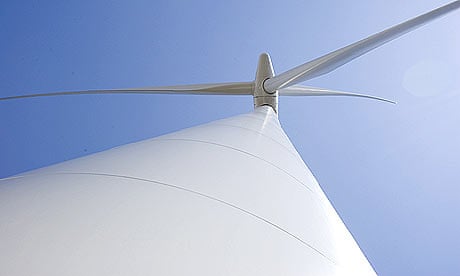The Guardian is committed to making its own positive contribution to climate change (through editorial coverage, support for campaigns such as 10:10, and our own 10% reduction target), but a carbon footprint of a certain size will inevitably remain. Papers still need to be printed, print sites and office buildings operated, and staff to travel.
In the past, the Guardian's parent company, Guardian News & Media (GNM), has opted to address its emissions by carbon offsetting. When done well, with the right organisations, in support of good projects and as one element of a carbon strategy, this can be a useful tool. Nonetheless, offsetting is not an unproblematic issue.
That's why we are now taking a different approach – one that focuses on building partnerships with three organisations that cut carbon emissions but doesn't pretend we are "neutralising" a particular number of tonnes of CO2 from our operations through the partnership. Each organisation gets a fixed donation from a total annual pot of £40,000 and we are committed to them all for three years.
GNM's support for one of the organisations – The Converging World, which supports green energy projects in India and the UK – acknowledges through its global nature the emissions generated by our worldwide business travel. Profits from the charity's first project, a wind farm in Tamil Nadu, are split between a local organisation investing in health, education and environmental projects; and investment in more turbines.
On a local level, we support C-Change in delivering Eco-Mission, a schools-based initiative that supports carbon reduction and sustainable practices. The first phase centres on 30 students at the Elizabeth Garrett Anderson school near the Guardian offices in London. Students work to educate their peers on environmental issues, and also to gather data on their own behaviour which is then translated into actions ranging from community newsletters to gardening initiatives. Work with a second school, Eastlea Community school, close to our London print site, starts next month.
Finally, on a UK national level, GNM supports the charity Sandbag. Sandbag campaigns to raise awareness of the European Union's Emissions Trading Scheme (ETS), and aims to ensure that the CO2 limits for energy-intensive industry are not simply met, but result in a net reduction of emissions. Last year, Sandbag purchased and retired 2000 tonnes of CO2 permits from Guy's and St Thomas' NHS Trust, the equivalent of taking 1,000 cars off the road for a year. The revenue generated was used by the Trust to fund its continuing energy efficiency work.
Whichever approach is taken, it's clear that "partnership" is the key, and whether on a local or an global level, collaborations are vital in the battle against climate change.
